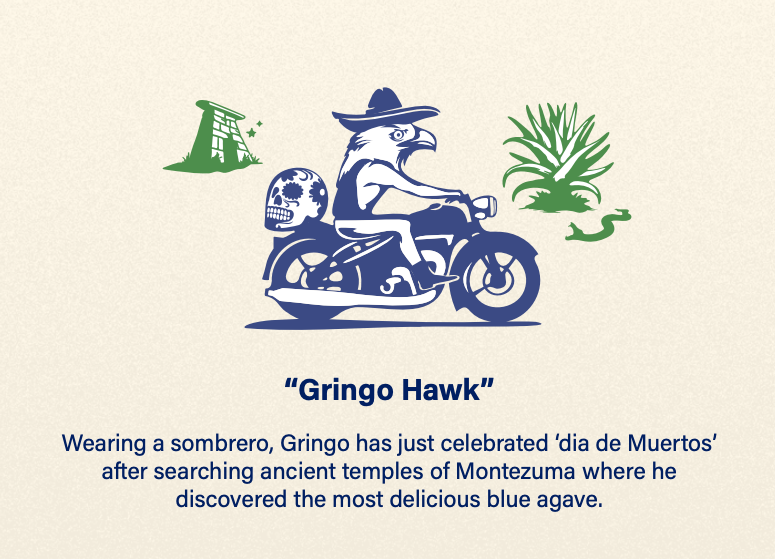
· By Marcus Child
The story behind Non-alcoholic Mezcal
The Rich History of Mezcal
Mezcal, often referred to as the "ancestor of tequila," is a spirit steeped in history, tradition, and cultural significance. Its roots trace back to pre-Hispanic Mexico, long before the arrival of Spanish conquistadors. The indigenous peoples of Mexico, particularly the Zapotecs, Mixtecs, and Nahuatls, have utilized the agave plant for centuries, initially for its fibers and sap. Pulque, a fermented agave beverage, was a staple in their rituals and daily life.
The introduction of distillation techniques by Spanish colonizers in the 16th century transformed pulque into mezcal. The word "mezcal" is derived from the Nahuatl word "mexcalli," meaning "oven-cooked agave." This name reflects the traditional method of roasting agave hearts, or piñas, in earthen pits, a practice that imparts the distinctive smoky flavor characteristic of mezcal. Over time, mezcal evolved into a symbol of Mexican heritage, its production methods passed down through generations of families.
Oaxaca: The Heartland of Mezcal
Oaxaca, located in southern Mexico, is often considered the cradle of mezcal. This region's unique geography and climate, with its arid valleys and rugged mountains, create ideal conditions for growing various species of agave. Over 90% of mezcal production occurs in Oaxaca, where the spirit is not just a drink but a way of life.
One of the most iconic landmarks in Oaxaca is the Temple of St. Alban. This ancient temple, perched atop a hill overlooking the Oaxaca Valley, dates back to pre-Columbian times. It was originally built by the Zapotecs to honor their gods and later adapted by the Spanish to venerate St. Alban, a revered martyr. The temple's enduring presence is a testament to the region's deep spiritual and cultural roots.
The Temple of St. Alban holds a special place in the hearts of the Oaxacan people. According to local legend, the temple's location was chosen for its unique energy, believed to enhance spiritual practices. Over the centuries, the temple has witnessed countless ceremonies, from indigenous rituals to Catholic masses, embodying the fusion of cultures that defines Oaxaca.
The Tale of Don Juan and the Power of Silence
Among the many legends of Oaxaca, the story of Don Juan stands out. Don Juan was a master mezcalero, a shaman, and a keeper of ancient traditions. He lived in a small village near the Temple of St. Alban, where he was known for his exceptional mezcal and profound spiritual wisdom.
Don Juan learned the art of mezcal-making from his father, who had inherited it from his father before him. But Don Juan's mezcal was said to be unlike any other. People traveled from far and wide to taste his creations, which were infused with a unique energy and depth of flavor.
One of Don Juan's secrets was his practice of silence. He believed that silence held a special power, a way to connect with the spirit of the agave and the essence of the land. Each year, during the harvest season, Don Juan would retreat to the mountains, spending days in solitude and silence. He would listen to the wind, the rustling of agave leaves, and the whispers of the earth, seeking guidance and inspiration.
Upon returning from his silent retreat, Don Juan would begin the mezcal-making process. He carefully selected the ripest agave piñas, cooked them in earthen pits, and distilled the liquid with meticulous attention. The result was a mezcal that was not only a drink but a spiritual experience, capturing the essence of Oaxaca and the wisdom of the ancients.
Crafting Our Non-Alcoholic Mezcal
Inspired by the rich history of mezcal and the legends of Oaxaca, we set out to create a non-alcoholic mezcal that honors these traditions while providing a modern, mindful alternative. Our process begins with the careful selection of agave hearts, which are charred to perfection to capture the smoky essence that defines traditional mezcal.
We source the finest agave piñas from sustainable farms in Oaxaca. These agave hearts are then roasted in earthen pits, using hot stones to impart the characteristic smoky flavor. The roasting process is crucial, as it transforms the agave's natural sugars into complex flavors, creating a rich, earthy base for our mezcal.
Once the agave piñas are perfectly roasted, they are pressed to extract the juices. This juice is then carefully blended with natural botanical extracts, including salted lime and habanero, to create a balanced, non-alcoholic spirit. We use a proprietary maceration and cold infusion process to remove the alcohol while preserving the depth of flavor and complexity.
Our maceration process involves soaking the charred agave, salted lime, and habanero in a cold environment, allowing the flavors to meld slowly and naturally. This method ensures that the essential oils and aromatic compounds are preserved, resulting in a vibrant and complex non-alcoholic mezcal.
Finally, we bottle our mezcal with a touch of sea salt, enhancing the overall taste and evoking the traditional method of serving mezcal with a pinch of salt. The result is a non-alcoholic mezcal that captures the essence of Oaxaca's ancient traditions, offering a sophisticated and mindful alternative for those seeking the rich flavors of mezcal without the alcohol.
Our non-alcoholic mezcal is more than just a beverage; it's a tribute to the history, culture, and legends of Oaxaca. It embodies the spirit of the land and the wisdom of master mezcaleros like Don Juan, offering a taste of tradition with a modern twist. Whether enjoyed neat, in a cocktail, or as a mindful alternative to traditional spirits, our non-alcoholic mezcal provides a unique and authentic experience that honors the past while embracing the present.


